Endocrinology and Hormones
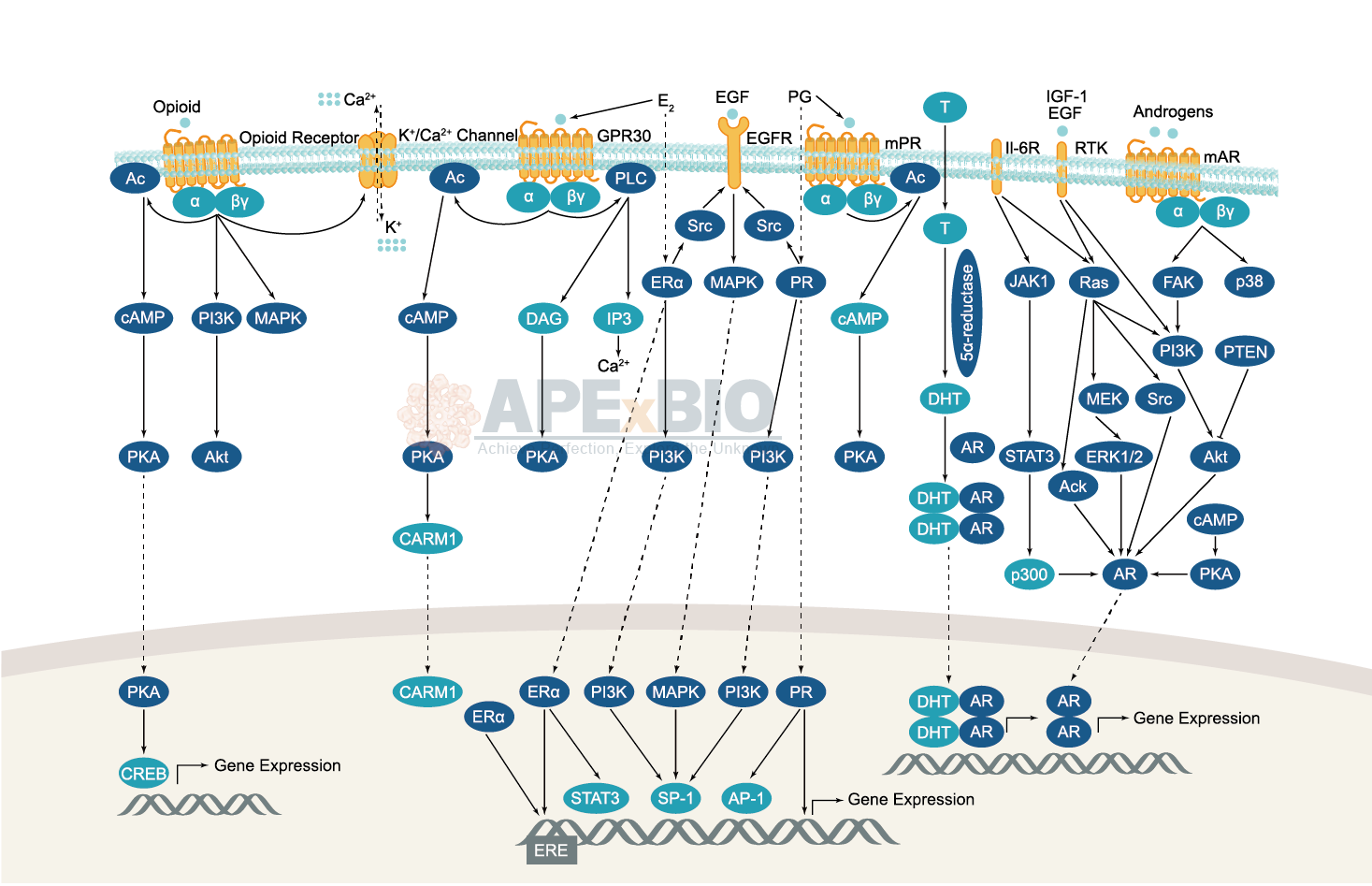

Endocrinology is the study of hormones, their receptors and intracellular signaling pathways, as well as the related diseases. The endocrine system functions can be broadly classified into several categories, including reproduction and sexual differentiation, development and growth, maintenance of the internal environment, and regulation of metabolism/nutrient supply.
There are three types of hormones based on their chemical composition: Amines (e.g. dopamine, adrenalin and noradrenalin); Steroids (e.g. estrogen, testosterone and glucocorticoids); Peptides (e.g. the peptide hormones insulin, ghrelin and vasopressin). Peptide hormones produced by secretory nervous tissue are known as neuropeptides. For example, thyroid hormone plays important parts in development, homeostasis and metabolism, while cortisol is essential for growth, nutrient supply and immune function. Moreover, the regulation of blood glucose involves several pancreatic peptide insulin and its counter regulatory hormone, glucagon, as well as cortisol, growth hormone and epinephrine.
Dysregulations in endocrine system are implicated in diseases such as Acromegaly, Cushing Syndrome, Diabetes, Dwarfism, Graves Disease, Hermaphroditism, Delayed and Precocious Puberty and Thyroid Diseases.
-
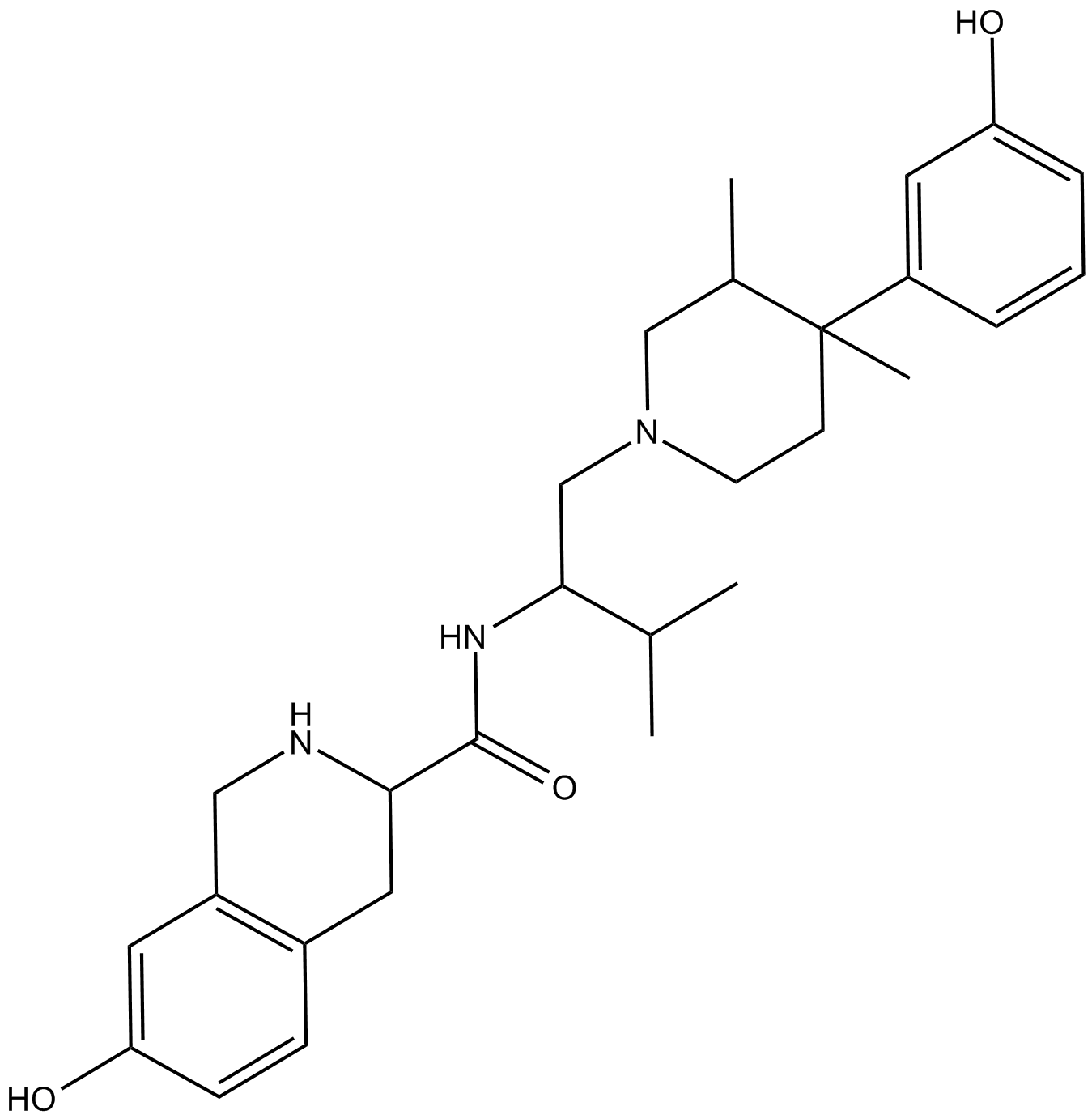 A3517 JDTicSummary: Opioid antagonist
A3517 JDTicSummary: Opioid antagonist -
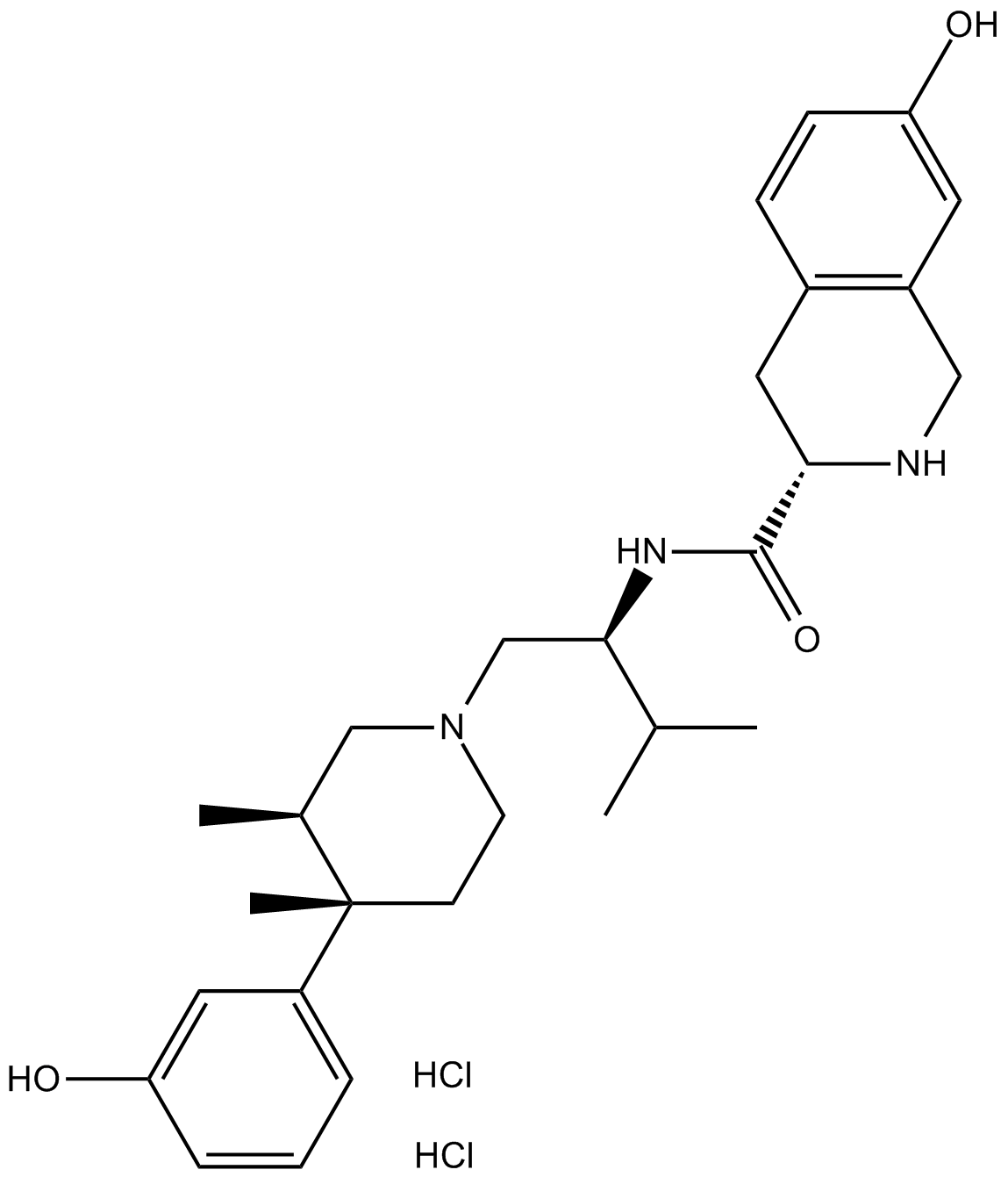 A3518 JDTic 2HClSummary: κ-opioid receptor antagonist
A3518 JDTic 2HClSummary: κ-opioid receptor antagonist -
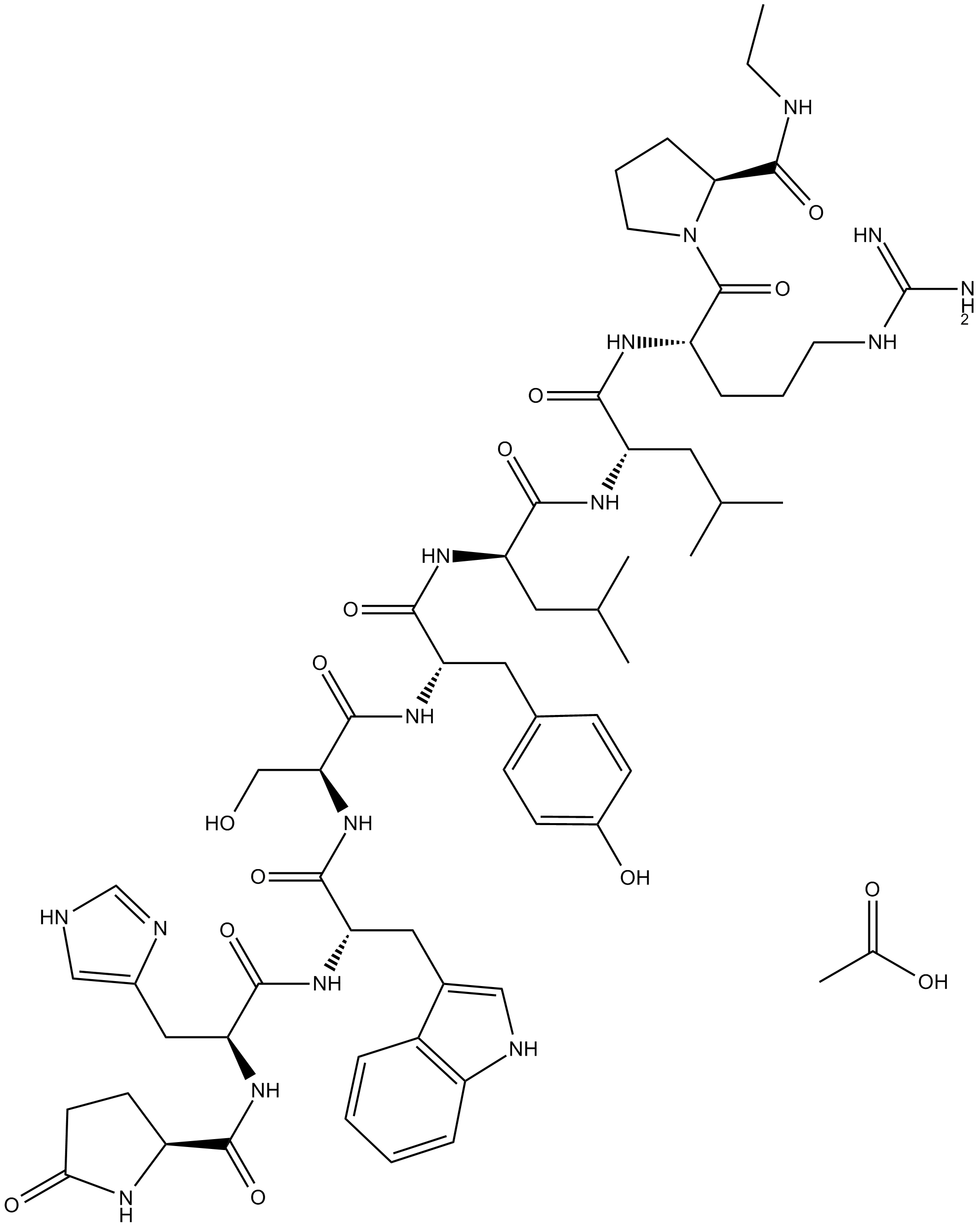 A3551 Leuprolide AcetateSummary: Pituitary GnRH receptors agonist
A3551 Leuprolide AcetateSummary: Pituitary GnRH receptors agonist -
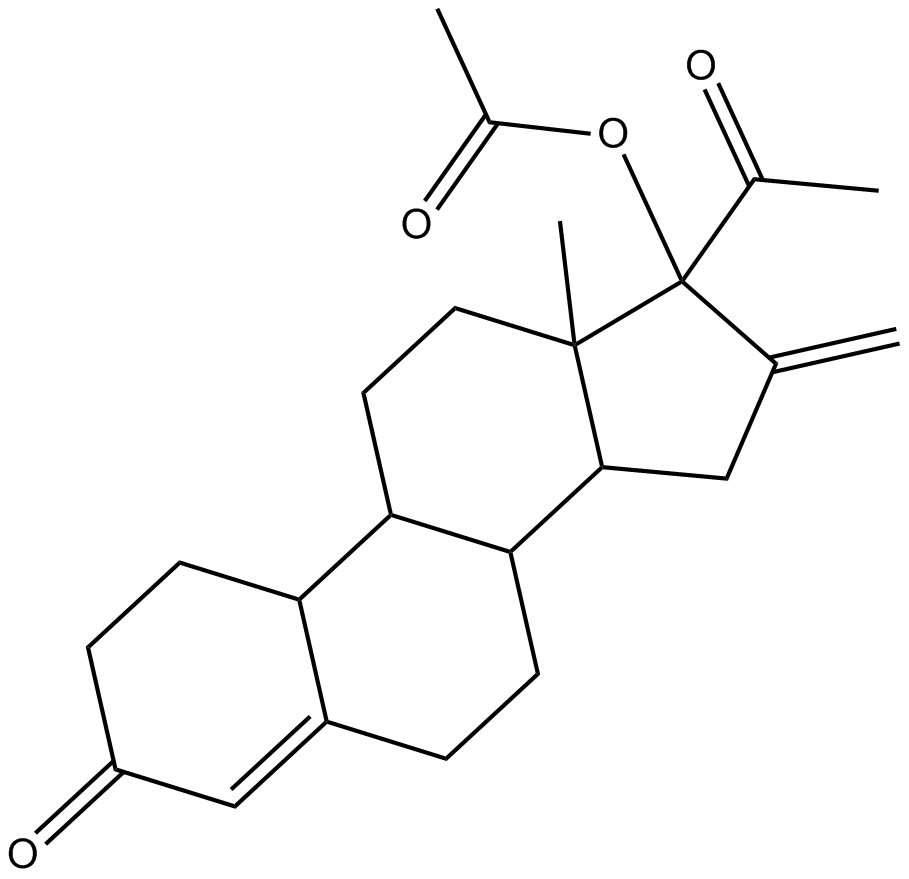 A3656 Nestoron
A3656 Nestoron -
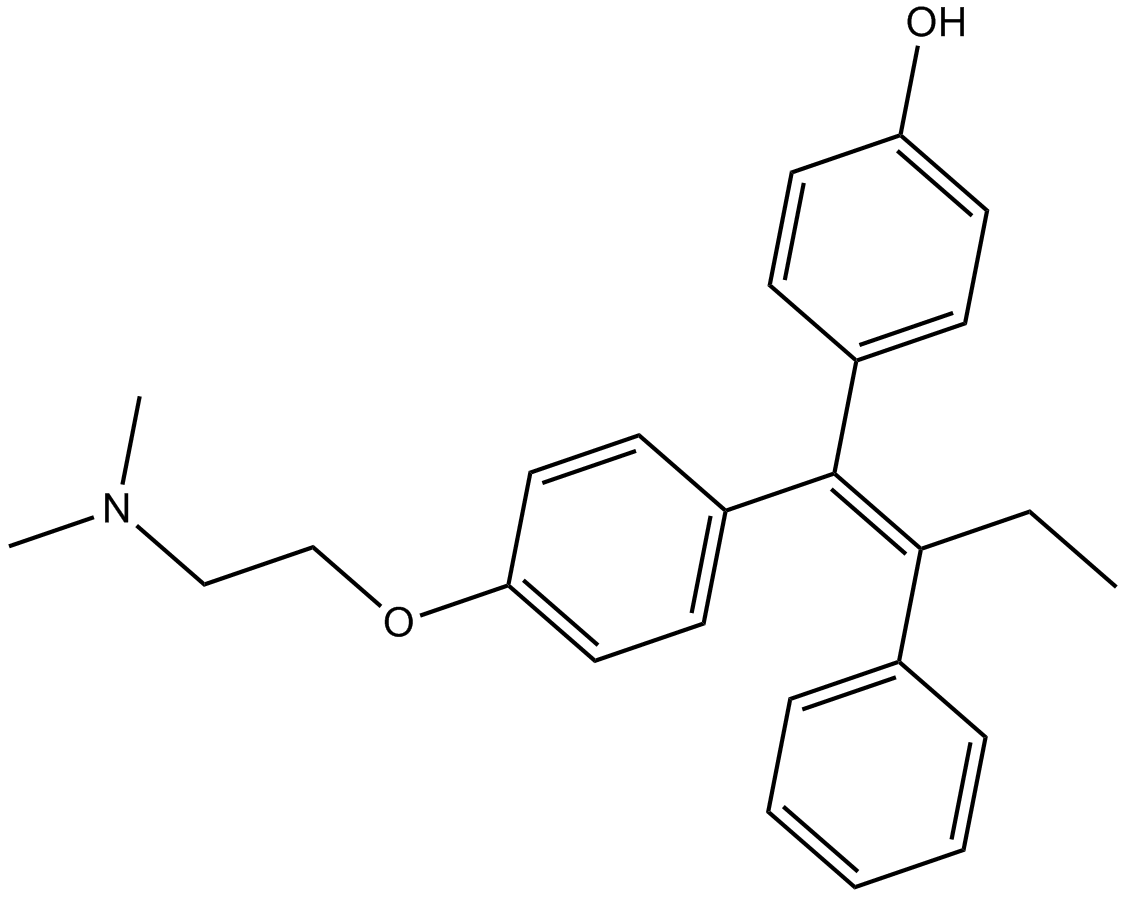 B5421 (Z)-4-Hydroxytamoxifen2 CitationTarget: Estrogen and Related ReceptorsSummary: ER modulator, potent and selective
B5421 (Z)-4-Hydroxytamoxifen2 CitationTarget: Estrogen and Related ReceptorsSummary: ER modulator, potent and selective -
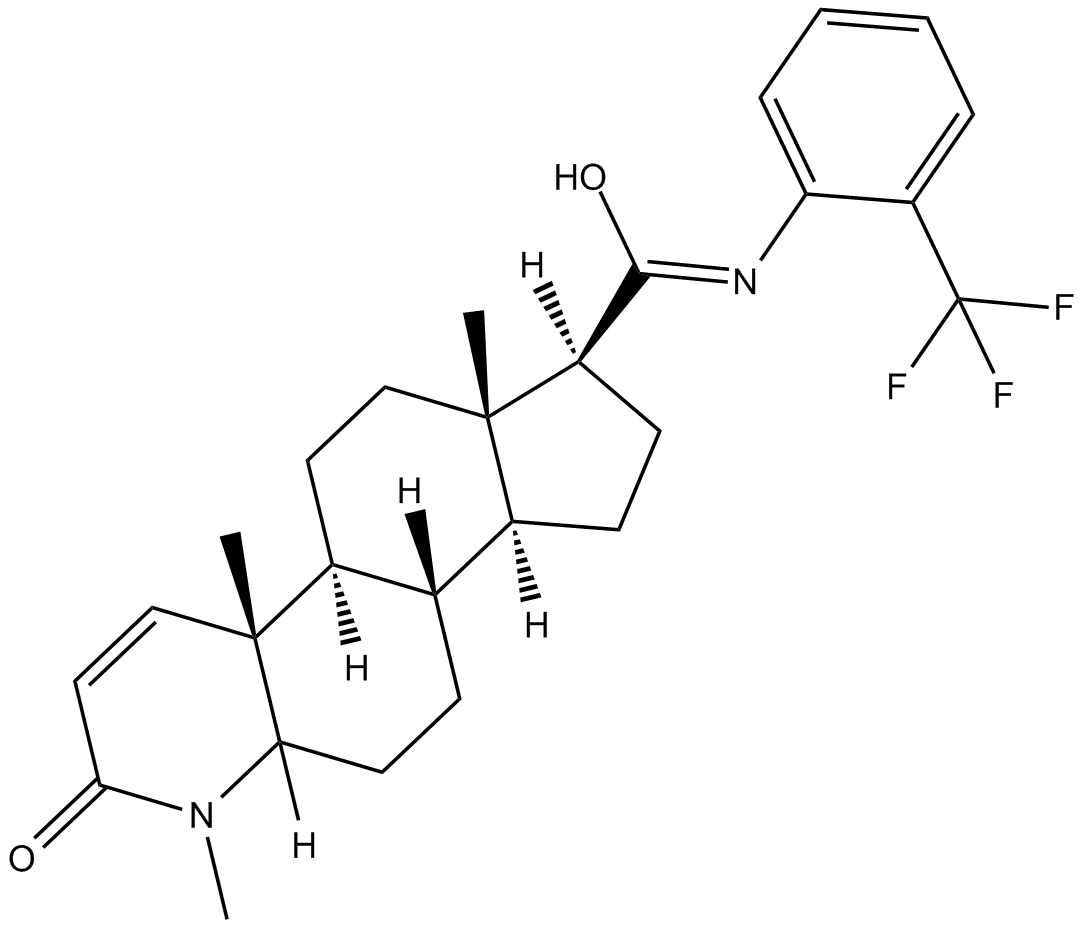 B5481 TFM-4AS-1Summary: androgen receptor modulator
B5481 TFM-4AS-1Summary: androgen receptor modulator -
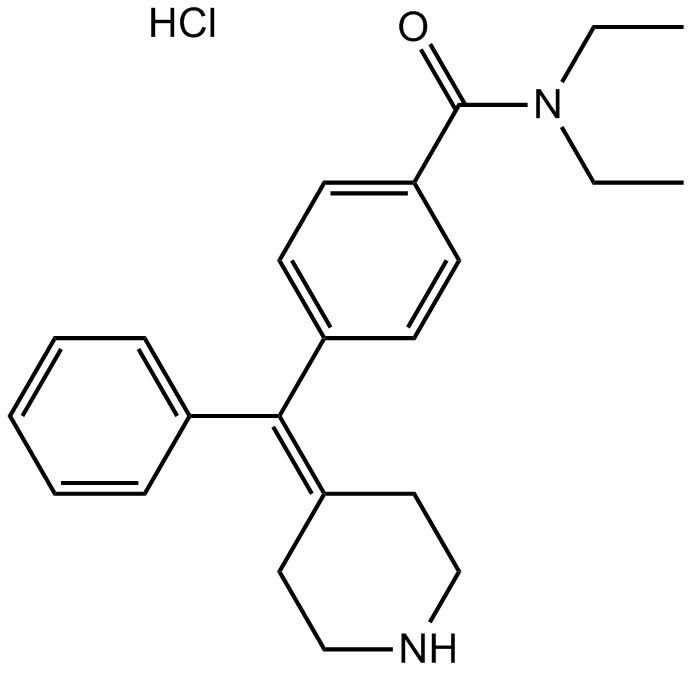 B5558 AR-M 1000390 hydrochlorideSummary: Delta-opioid receptor agonist,low-internalizing
B5558 AR-M 1000390 hydrochlorideSummary: Delta-opioid receptor agonist,low-internalizing -
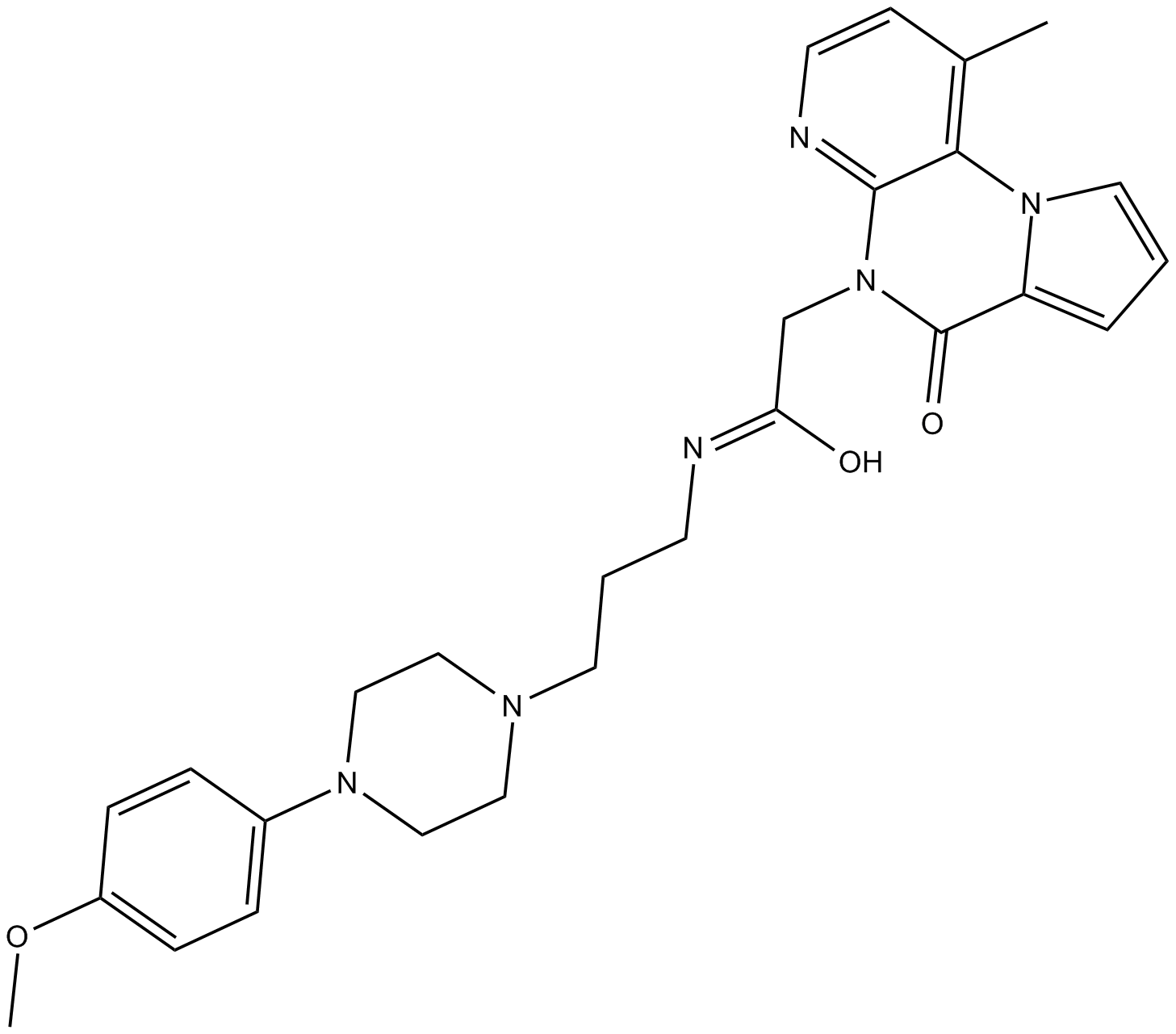 B5741 ML 190Summary: κ opioid receptor (KOP) antagonist
B5741 ML 190Summary: κ opioid receptor (KOP) antagonist -
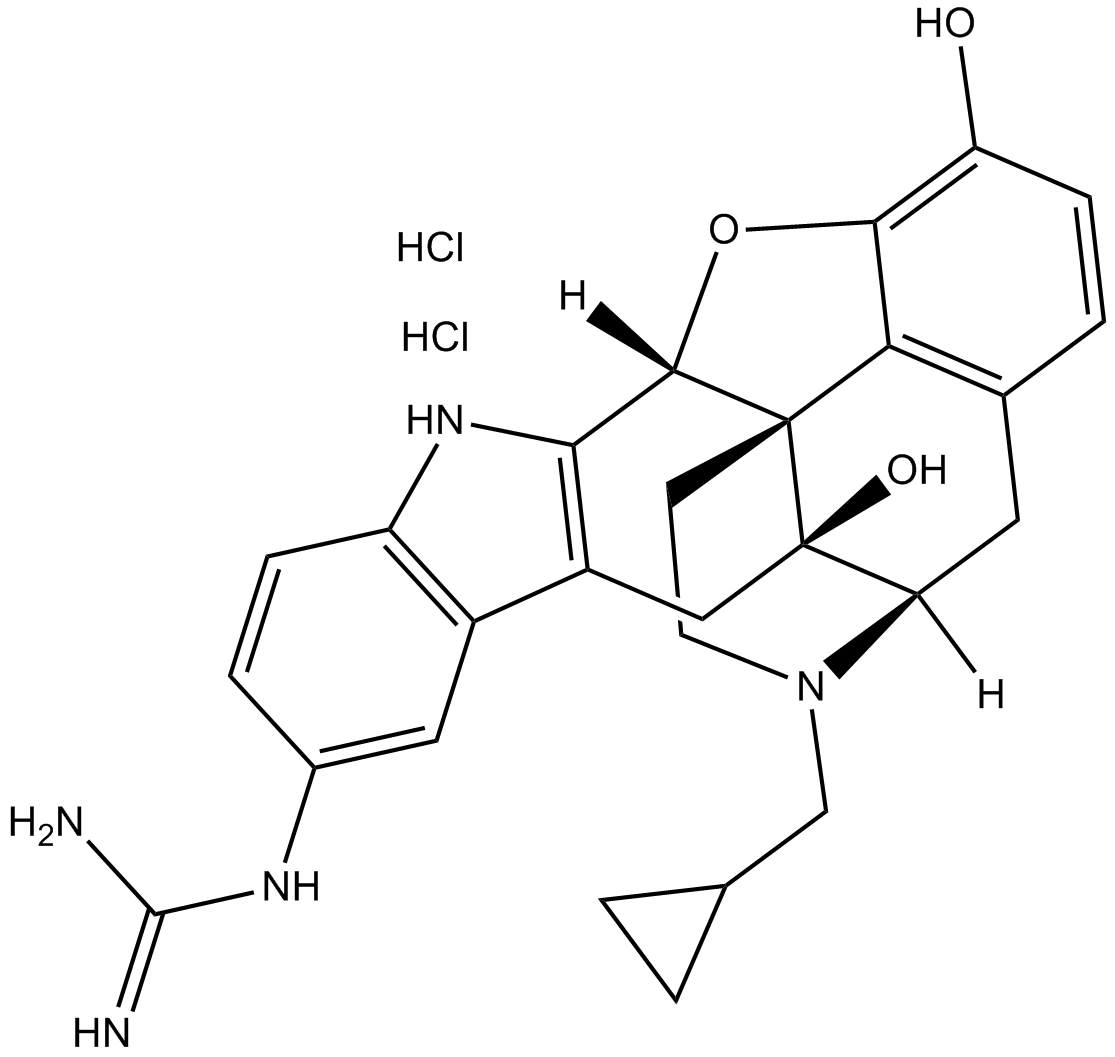 B6669 GNTI dihydrochlorideSummary: κ opioid receptor antagonist
B6669 GNTI dihydrochlorideSummary: κ opioid receptor antagonist -
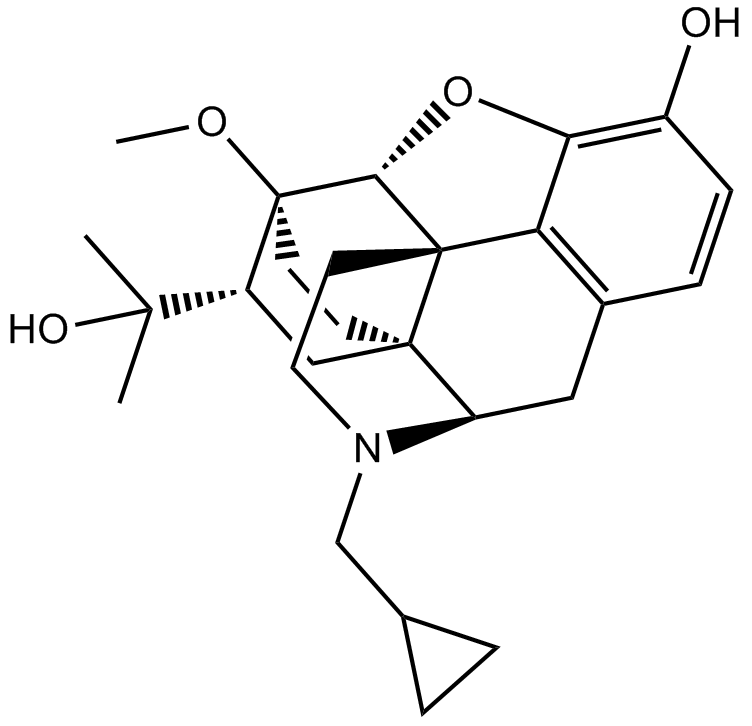 B5353 DiprenorphineSummary: Non-selective opioid receptor antagonist
B5353 DiprenorphineSummary: Non-selective opioid receptor antagonist


